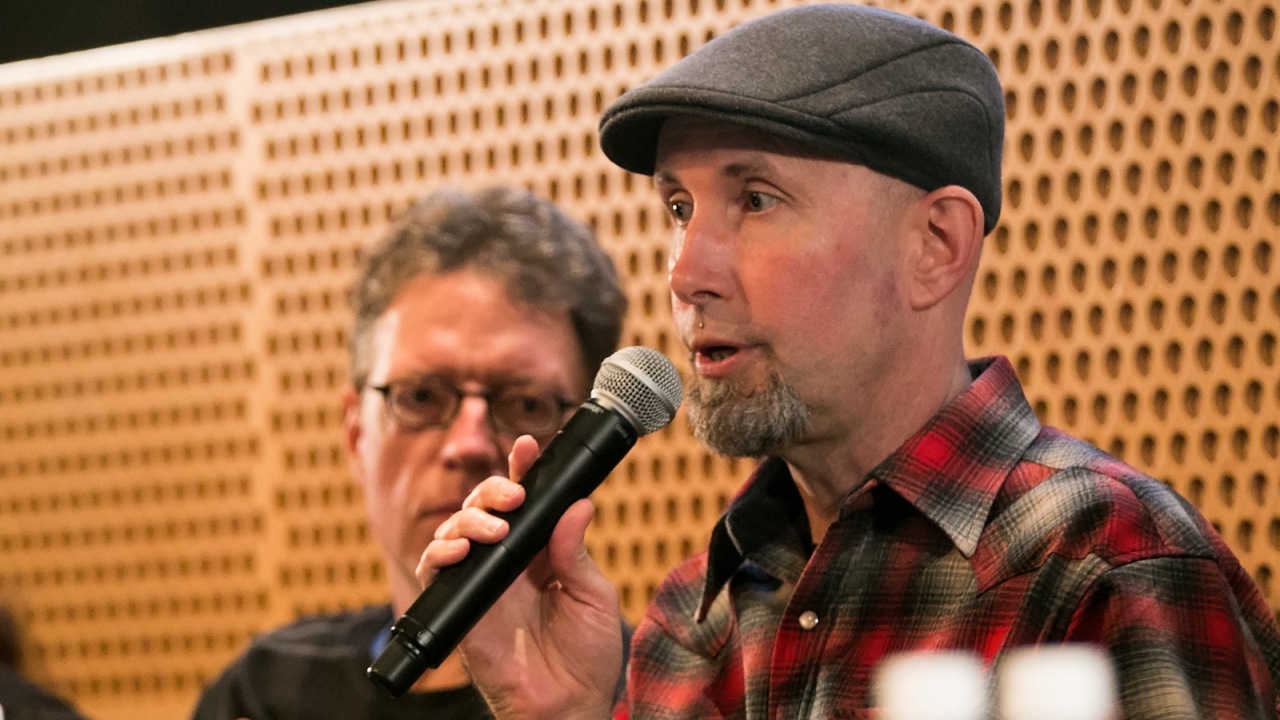Bruce Pavitt calls his book, The Subterranean Pop Music Anthology 1980-1988, “the best index available of American indie music from ‘80s”. In its pages there are more than one thousand bands, some of them household names, some of them among the most influential bands in the 20th century, but the great majority of them almost completely unknown even when they were together. And it’s these obscure bands that make this anthology a wonderful thing.
The Subterranean Pop Music Anthology is a collection of lovingly reprinted columns written for Seattle’s The Rocket newspaper and the ‘80s zines published by Pavitt – the founder of Sub Pop records who would go on to sign Nirvana. Together, they provide a gloriously immediate entry to the American indie underground of the ‘80s through articles that, though occasionally dated, are nonetheless utterly reminiscent of the time. Focussing on music in the Midwest and Northwest of the States, Pavitt would cover anything from Metallica to the Beastie Boys but the collection is at its best when collecting his writings on the far more obscure and independent acts who passed his way. Meanwhile, the birth of Sub Pop records and the emergence of Nirvana, Soundgarden, Mudhoney are detailed fascinatingly.
Pavitt grew up in suburban Chicago and spent his early years bored. “It was pre-internet and I was starving for new information,” he says. “I was motivated by meeting interesting people. I grew up in a fairly boring, suburban environment and by the time I was a teenager I was really driven to meet creative people.”
In the late ‘70s, he’d take the train into the city and hang out at Wax Trax!, the legendary Chicago punk record shop which went onto to become a highly influential new wave and industrial label. There he discovered the burgeoning punk scene and it lit a fire. “The shop was a little like Rough Trade in London, it was a hub, a network and a library,” he says. I’d spend hours in there pouring through zines and records. I realised that a revolution was happening – that people were creating their own culture and weren’t just allowing themselves to be spoon-fed by corporations. Groups like Devo were putting out their own singles while zines were writing about bands from obscure locales. I found that very inspiring and it planted a seed of cultural empowerment.”
He found himself in Washington State and quickly realised that, no matter where he was, he could make a scene happen. “I realised that any scene in the world could be huge,” he says. “Look at a place like Jamaica – look at the impact that island has had on music around the globe. Or even the United Kingdom – take into consideration the size of place and the influence its culture has had. It’s astounding. So I used to think of Washington State as a Jamaica or a UK. I knew we could do it too – all it would take was resources, networking and belief. And so it happened.”
He self-published his own zines and columns, detailed and describing the local scene, creating what has now become and archive of the underground. It might have cost him more to make the zines than he ever made from them, but that was hardly the point. “Nobody made any money in the ‘80s,” he says. “Bands like the Butthole Surfers were travelling around in a beat-up van playing to 10 people in a basement. They were doing that out of a sense of adventure and love for art – that’s really what unified the culture throughout the ‘80s.”
And in the pages he wrote, recreated here, there emerges the narrative of the undergound – the views, the politics, the opinions, the language and the aura of the time. Going back through it all to collect it for this book made Pavitt mostly very proud but occasionally embarrassed. “A lot of it made me cringe. When you’re young, you say dumb stuff and some of the writing is a little off,” he said. “But, frankly, I was also astounded by how on it I was with calling bands from the get-go. There’s a whole series of bands that became influential, – from Sonic Youth to Minor Threat to Black Flag, Run DMC and the Beastie Boys – and I was reviewing their first records and nailing it over and over again. It blew my mind how prophetic my reviews were! I’m a visionary – what can I say?”
But mostly going back through it all took him back to the days before Nirvana changed everything for Sub Pop and his life was all about the joy of discovering new sounds. “I was just living my life moment to moment then,” he says. “The idea that the humble zine that cost me $50 to produce would morph into a record label that would sign Nirvana, who eventually became the most popular band in the world, was a little beyond my imagination.”
The Subterranean Pop Music Anthology 1980-1988 is available now.


